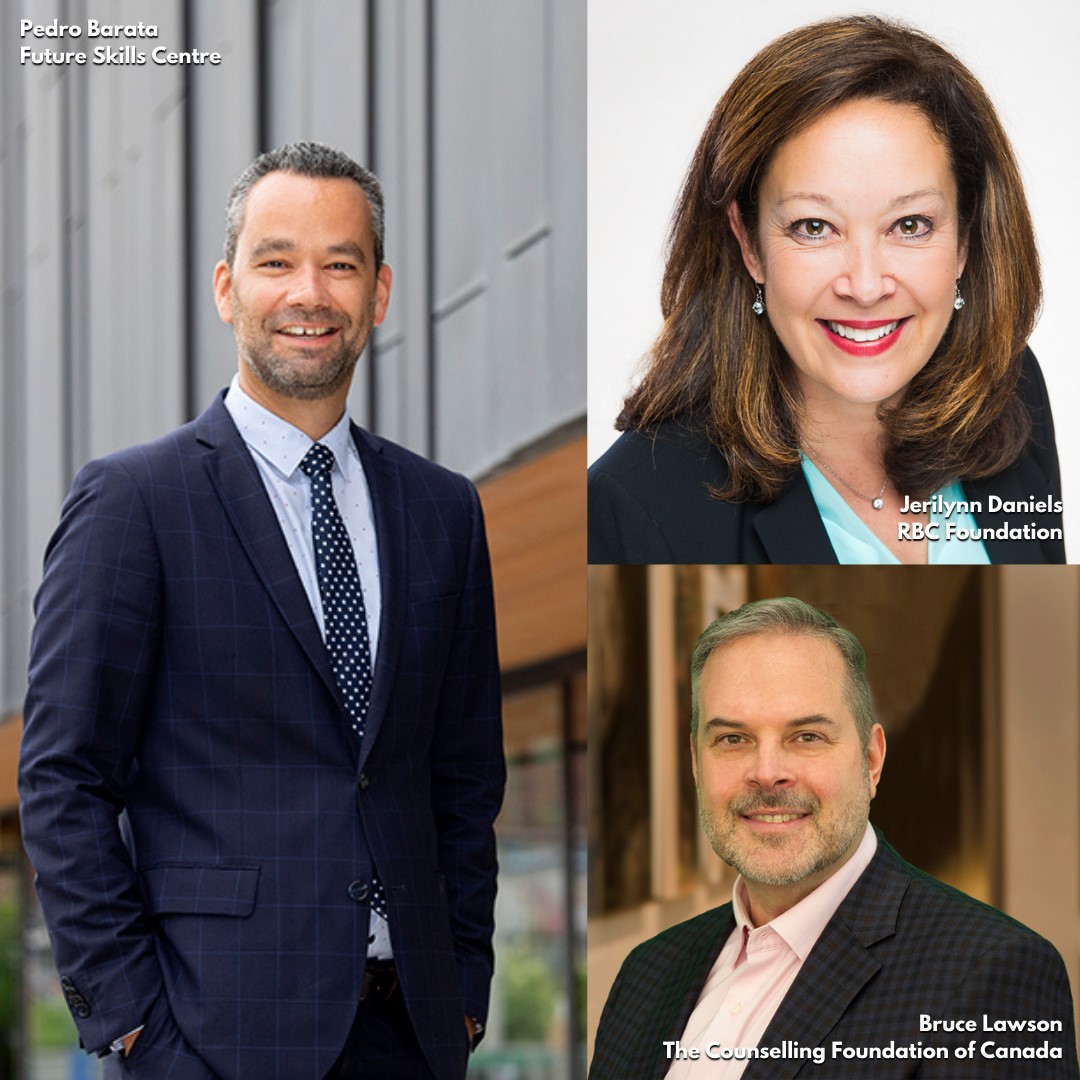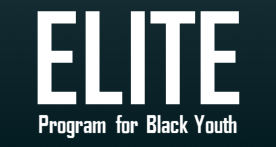
Author: Tom Ndekezi
30 September 2021
After wrapping up a successful first year of operation, the Experiential Learning in Technology and Entrepreneurship (ELITE) Program for Black Youth is also celebrating another significant milestone — securing nearly $750,000 in seed funding in the program’s inaugural year.
Bolstered by a distinct drive to create experiential learning and work-integrated training internship opportunities for Black youth, the ELITE Program has been able to spend this first year building a solid foundation for future years of the program. That strong start would not have been possible without the support of the , all of whom came together to form the ELITE Program’s donor base. Although these are still early days, it’s clear that the ELITE Program’s first-of-its-kind approach is already garnering support from some of the nation’s most progressive funding organizations. To find out why, we spoke with those partners to see exactly what makes the ELITE Program stand out.
Sowing a seed
Founded in 1959, The Counselling Foundation of Canada aims to facilitate the career development of youth nationwide. Doing that work requires keeping an eye out for programs that prepare youth for where the job market is today, but also backing initiatives oriented towards where the job market is going.
“We're hoping that by being early funders on things, we might seed some innovation in the system or support new programs that have the ability to be replicated,” says Bruce Lawson, Counselling Foundation President.
The Foundation’s commitment to remaining at the forefront of career development necessarily involves early adoption, which is exemplified in its willingness to support the ELITE Program during its first year of operation. But investment seldom comes before promise, and when discussing the ELITE Program’s exemplary features, Lawson is quick to highlight the program’s numerous partnerships and alliances, and its connections to the larger Black community. Lawson also mentions being impressed by the ELITE Program’s practical approach to addressing barriers that have historically kept Black youth out of career development spaces.
“The fact that these were paid internships was really important to us,” Lawson says, speaking of the ELITE Program’s commitment to use funding dollars to ensure that program participants are paid while being trained. “There are a lot of internships out there that are unpaid, which is typically a barrier for anyone who comes from a lower socio-economic background — whether they’re Black, Indigenous, or belonging to another racialized community.”
The right fit
Although the last year has seen reinvigorated discussion about the future of work in almost every sphere of society, those conversations were already going on for several years at the RBC Foundation. More specifically, those conversations go back to the announcement of RBC Future Launch in 2017, a 10-year, $500-million commitment designed to help young people adapt to the demands of an ever-changing job market. Recognizing a gap between the skills training that Canadian youth were receiving and the expectations of an increasingly technocratic, automated, and globalized labour market, RBC Future Launch seeks to bring “young people together with community leaders, and partners across the private and public sectors to help them prepare for the future of work.” And although developments like the pandemic have certainly modified projections about what the future of work may look like, Future Launch’s course is still as steady as ever as it closes the fourth year of its mandate.
“Future Launch is broad enough that it can encompass many things,” says Jerilynn Daniels, Regional Director, Community Marketing and Citizenship for RBC in Alberta and Territories. “We announced our commitment to Future Launch long before the pandemic and so it will go through until 2027. Knowing that it's a 10-year commitment, we continue to do the research around what the future of work looks like.”
Fulfilling that forward-looking focus also requires finding programs that are similarly aligned, which is exactly what RBC Future Launch saw in the ELITE Program.
“The three key focus areas of Future Launch are 21st century skills development, helping youth increase their networks, and providing them with work-integrated learning opportunities. Those three things are totally encompassed within the ELITE Program,” Daniels says. “The additional focus on the fact that it's BIPOC youth just further enhances that.”
Beyond providing funding support, RBC Future Launch also partnered with the ELITE Program to provide program participants with financial literacy sessions through the ELITE Program Entrepreneurship Design Series. It’s all part of RBC Future Launch’s desire to help youth thrive not only during their time as program participants, but also ensure that they are equipped with the skills they need to become changemakers in their own right.
“We hope that the ELITE Program will be a tremendous launchpad for these young people that are having the opportunity to be the first into this program to really help shape it,” Daniels says. “With it being a pilot, the end result always looks a little different than when it's first launched. And so we hope, like any of our programs that we fund, that this will be a long relationship and that the program will grow and impact lots of BIPOC youth.”
Leveling the playing field
Early on in the pandemic, it became readily apparent that what was initially thought of as an indiscriminate equalizer was in reality a magnifying glass on pre-existing social inequities. For the Future Skills Centre, identifying the problem at hand was a positive first step, but then it was time to act.
“We wanted to explore concrete ways of addressing and mitigating the effects of a K-
shaped recovery following the economic impact of the pandemic,” says Pedro Barata, Executive Director of the Future Skills Centre.
The K-shaped recovery that Barata is referring to is an economic concept that describes varying rates of recovery in different parts of the economy following a widespread perturbation. For example, although most sectors of the economy suffered losses as a result of the COVID-19 pandemic, sectors — or individuals — that entered the crisis with larger pools of resources to fall back on were able to recover more quickly than those with less financial and social capital. Favourably-positioned actors were in some cases even able to take advantage of incentives like lower interest rates and build their wealth as the pandemic progressed, despite the economy suffering more generally. Conversely, sectors and individuals that were struggling prior to the pandemic were likely to continue doing so during the economic downturn, with their situation often worsening as they saw labour markets shift away from their skill sets. Such a phenomenon can be graphed to reveal a K-shaped trajectory which, put simply, sees the rich getting richer and the poor getting poorer.
That distribution alarmed the folks at the Future Skills Centre, and in response, they sought ways to address the economic damage of the pandemic and enhance peoples’ prospects for the future by sponsoring 64 new innovative projects.
“The goal with all 64 shock-proofing projects is to prepare the workforce for the
opportunities and jobs of the future. These projects aim to explore and demonstrate
skills innovation,” Barata says. “The projects strive to navigate change, imagine the future, and help all Canadians – especially those facing multiple barriers to full employment – in acquiring the skills and resilience to thrive in the workforce of today and tomorrow.”
Among those 64 projects selected by Future Skills Centre as part of their “shock-proofing the workforce of the future program” was the ELITE Program. The Future Skills Centre realizes that achieving their goal of preparing Canadians from all walks of life for the future of work requires a targeted approach, and as a result, almost two-thirds of the projects target specific populations and the barriers preventing them from full economic participation.
Barata also emphasized the importance of practical skills training, which is at the heart of the ELITE Program’s work-integrated learning approach.
“We hope that [the ELITE Program] will serve as a new model that showcases collaborations between institutional partners (governments, employers, and universities)... New skills development models should achieve better integration between recruitment, training and education, employment, and wrap-around support for success. It’s not just about the skills – it’s about supporting people on the many other factors that go into helping them achieve their potential.”
This work was supported by The Counselling Foundation of Canada; RBC Foundation; Future Skills Centre; The Government of Canada Summer Jobs Program; and The University of Alberta.

